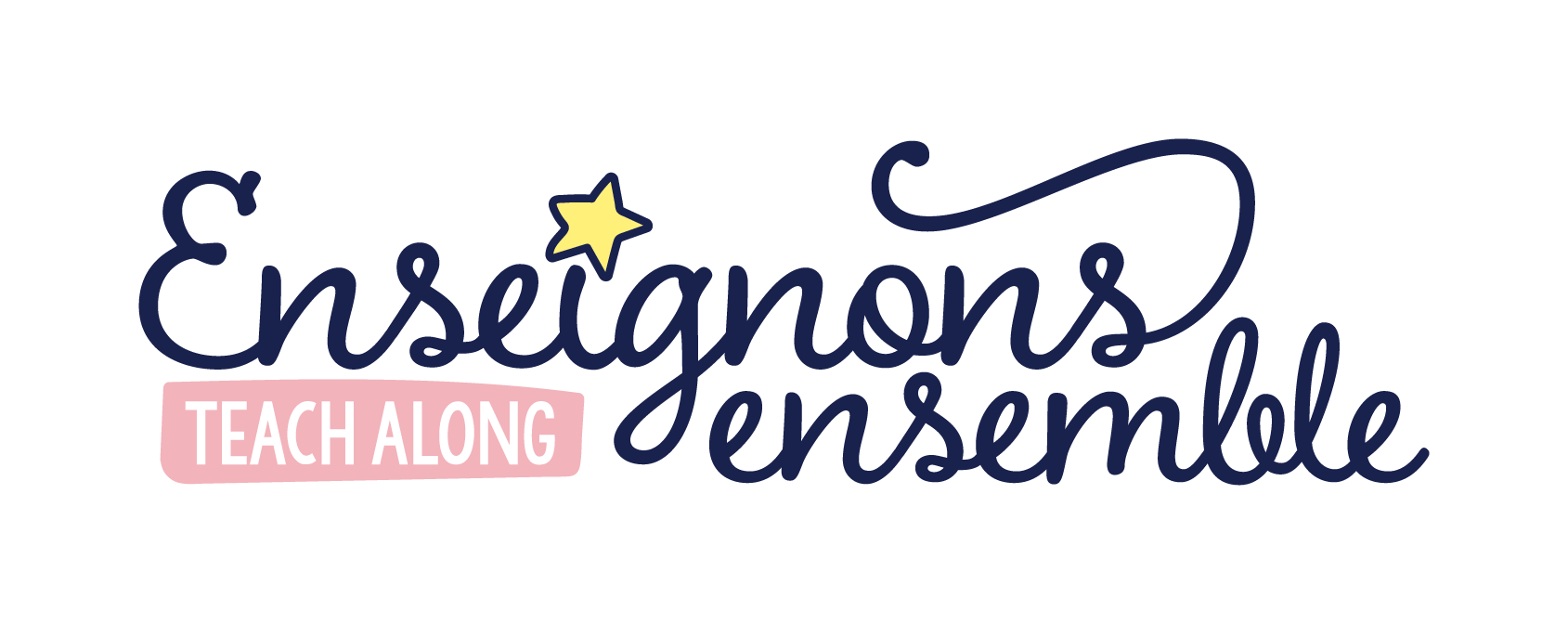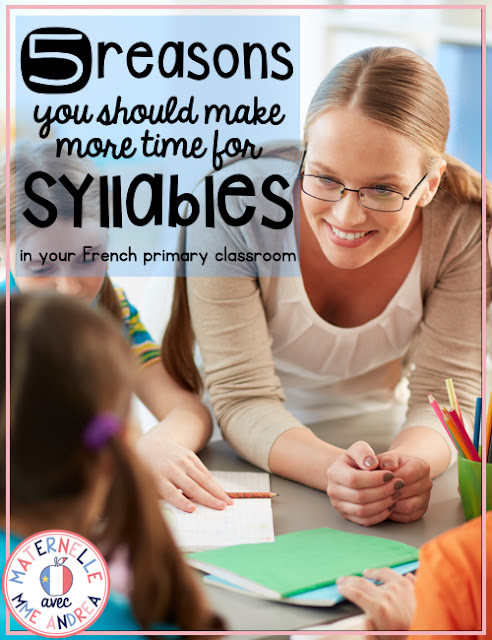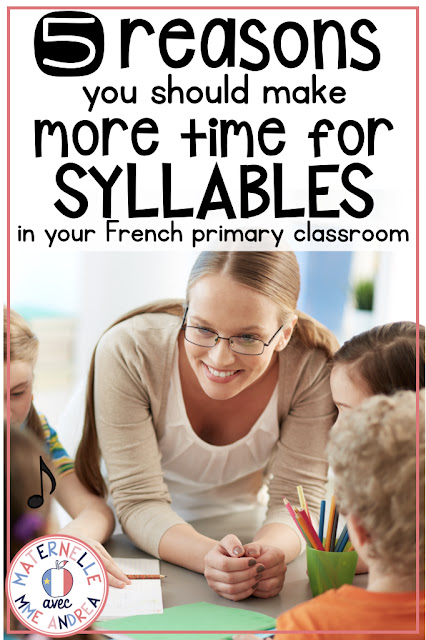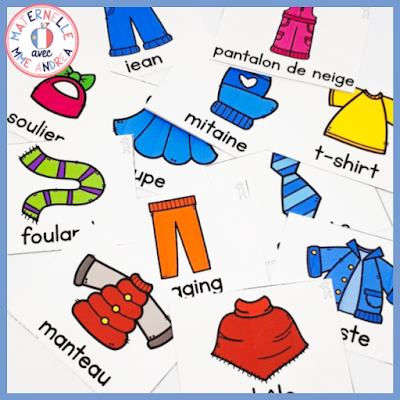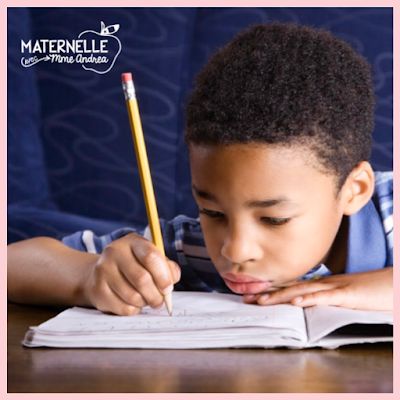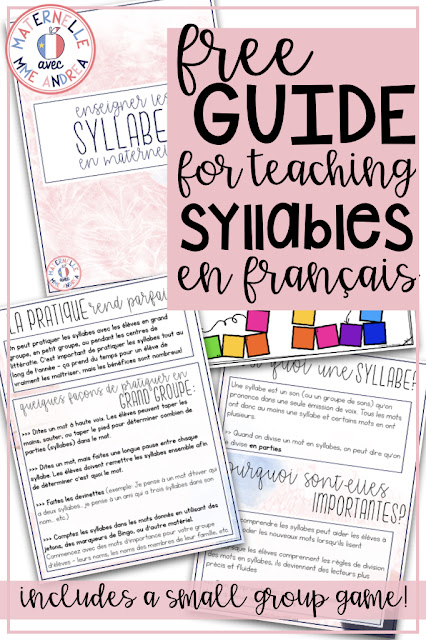Real talk!
If you’re a teacher, too, I’m sure that I don’t have to tell you this… but, sometimes we have so much going on that we can’t remember to cover #allofthethings.
I blink and then it’s March and I haven’t even covered HALF of the things that I planned to cover by now!
It can be so easy to be tempted to skip over or rush some of the simpler things that probably everyone knows anyway.
Like syllables!
My first year of teaching, I thought that syllables were easy and obvious and that I didn’t need to spend much time on them.
Of course, if you’ve read my other blog post about syllables, you already know that that was a mistake!
When it came time for my students to read words in chunks and “fusionne” them together, they hadn’t had enough practice with syllables, and we had to backtrack in order to continue moving forward.
Now, there are a bunch of reasons why I LOVE teaching and practicing syllables with my students.
Read on for my top 5 reasons I think that you need to make more time for syllables in your teaching day!
1. YOU CAN PRACTICE THEM RIGHT FROM THE BEGINNING OF THE YEAR
Syllables (along with rhymes) are one of my favourite things to practice orally at the beginning of the year.
Syllables show students that we can be silly and have fun with words!
They really force them to LISTEN to what they are saying and think about the sounds that make up words.
We want our students saying as many French words as they can right from the get-go, and practicing breaking big words into smaller parts will help our students become familiar with sounds and patterns in their new language.
Students also usually find success with this rather quickly – more easily than when they segment words into sounds. This makes sense because syllables made up of multiple phonemes are easier to hear than individual sounds.
For example, it is much easier for a five-year-old to identify the two syllables in the word “chaton” – “cha-ton”, than all of the four phonemes – “ch-a-t-on”.
However, beginning to identify bigger parts of words (syllables) will be great practice for later on in the year, when you do want them to practice listening for and identifying individual phonemes.
2. AWESOME EXPOSURE TO NEW VOCABULARY WORDS
No matter what games or activities you get your students to do to practice dividing words into syllables, you are sure to be getting them to say MANY different words out loud.
In the primary years, it is likely that you are using picture clues to let them know which words to say. This is such great vocabulary reinforcement!
The more times you can get your students saying new words and understanding what they mean, the more likely they are to assimilate these new words into their vocabulary.
For students to learn to speak French, they must be given as many opportunities as possible to actually SPEAK in French!
*Tip – if your students start K with ZERO French, a fun way to begin practicing syllables is to use their names and the names of their classmates! Just print out photos of the students in your class, hold them up, and get your students to count the syllables in their classmates’ names. This will get them used to the concept before you add in a bunch of words they are unfamiliar with.
Every new season and before every holiday, I introduce a bunch of new vocabulary words to my students using my Vocabulary word wall cards. To help them remember our new words, one activity we do is practice breaking each one into syllables.
This quick & easy activity helps make sure that we are working on syllables all year long, and it really helps my students remember their new words!
3. SYLLABLES CAN HELP STUDENTS BECOME BETTER SPELLERS
Think about it – it makes a lot of sense!
The more our students are used to hearing separate sounds in words, the better they will be able to correctly identify them and write them down.
Plus, students who master syllables will become better able to hear and recognize patterns in words.
That means that once they are able to spell one word, they will be able to spell many other words within the same “family”.
If you can hear and write down all the parts of “cha-peau”, you can change just one letter and then write “cha-teau”, too!
4. FANTASTIC GUIDED READING WARM UP
I love using syllable games as a guided reading warm-up activity before we get into the real “meat and potatoes” of our lesson!
I do play syllable games whole group as well, generally when we have a few minutes to kill or need a game break in between activities. But, small group practice is my favourite!
While not the most challenging concept we will learn in maternelle, I find that correct chunking does take practice, especially at first, and I want to make sure my munchkins are dividing each word in the correct places, and not practicing bad habits.
My students always ask for a game during guided reading, and I am always happy to oblige when I can provide them with a game that has them learning without even realizing it!
We do a variety of activities and games for guided reading warm-up that help us practice and understand syllables.
We break big words into small parts, take small parts and put them together to make new words, practice sorting words based on how many syllables they have, and more!
If you are interested in learning more about what I do to teach syllables (and why I think they are so important!) check out my FREE e-book (tout en français) all about helping your French primary students master syllables.
This e-book started out as a quick cheat sheet, but I had so much to say and so many activities to share that it quickly grew into a pretty big freebie.
There is even a game inside that you can use as a guided reading warm up, or as a literacy centre once your students are pros.
Just enter your name & email below, and I will send you the free e-book right away!
5. YOUR STUDENTS WILL BE MORE FLUENT READERS
When your students get good at breaking big words into smaller chunks, they will become faster at decoding.
When they know the rules for dividing words into syllables, they will be able to read new words both more accurately and more fluently.
And we definitely want our students to be as accurate and as fluent as possible!
It is MUCH easier to read a big word like “lavabo” as “la-va-bo” rather than “lll-aaa-vvv-aaa-bbb-ooo”, so we want to encourage our students to see, hear, and read chunks in words as much as we can.
So, how much time are you spending on syllables in your classroom?
Don’t forget, if your days are as jammed packed as mine, I have shared a bunch of quick and easy (and even some NO PREP) ways to work on syllables in my FREE guide.
These are the activities that I find the most helpful AND the most efficient in helping my students become syllable masters.
March will be here soon and the year will be almost over – don’t let it sneak up on you 😉 Get started on syllables tomorrow if you haven’t already!!
Even if you can’t cover #allofthethings, make sure you cover these 🙂
And, again – if you want to know even more ways to practice syllables, be sure to grab your copy of the FREE Guide to Teaching Syllables.
I think it will really help you out if you aren’t sure where to begin, or if you need a few new activities for your students!

